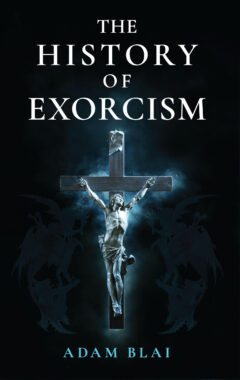Jesus performed many exorcisms as part of His public ministry. These were signs of His divine power, as He had, in himself, full power over demons. He had no need of any object, name, incantation, or prayer, like the other exorcists of His time.
Jesus also explicitly empowered His twelve disciples with authority over demons in all of the Synoptic Gospels:
Then he summoned his twelve disciples and gave them authority over unclean spirits to drive them out and to cure every disease and every illness. (Matt. 10:1)
He summoned the Twelve and began to send them out two by two and gave them authority over unclean spirits (Mark 6:7)
He summoned the Twelve and gave them power and authority over all demons and to cure diseases. (Luke 9:1)
Finally, when Jesus commissioned His twelve disciples to go and do their work, He explicitly included the exercise of that authority over demons:
As you go, make this proclamation: “The kingdom of heaven is at hand.” Cure the sick, raise the dead, cleanse lepers, drive out demons. (Matt. 10:7–8)
Many Protestant Christians claim that Jesus gave power over demons to all Christians based on Luke 10:17–20:
The seventy[-two] returned rejoicing, and said, “Lord, even the demons are subject to us because of your name.” Jesus said, “I have observed Satan fall like lightning from the sky. Behold, I have given you the power ‘to tread upon serpents’ and scorpions and upon the full force of the enemy and nothing will harm you. Nevertheless, do not rejoice because the spirits are subject to you, but rejoice because your names are written in heaven.”
Whether all Christians, some Christians, or only priests and bishops have authority to cast out demons would be revealed in time. Many centuries of experience would give the Church the wisdom to limit the exercise of the sacramental of exorcism and codify that limit into law. We now turn to that development.
After the Resurrection of Jesus and the imparting of the Holy Spirit at Pentecost, the apostles started performing many signs that stood as proofs of the truth of their preaching. Immediately after Pentecost, we read of many people being delivered from unclean spirits in Jerusalem:
A large number of people from the towns in the vicinity of Jerusalem also gathered, bringing the sick and those disturbed by unclean spirits, and they were all cured. (Acts 5:16)
Philip is specifically described as exorcising many people in Samaria after the apostles went out to preach in different cities:
Thus Philip went down to [the] city of Samaria and proclaimed the Messiah to them. With one accord, the crowds paid attention to what was said by Philip when they heard it and saw the signs he was doing. For unclean spirits, crying out in a loud voice, came out of many possessed people, and many paralyzed and crippled people were cured. There was great joy in that city. (Acts8:5–8)
The first detailed exorcism account is of Paul exorcising a soothsaying girl in Philippi:
As we were going to the place of prayer, we met a slave girl with an oracular spirit, who used to bring a large profit to her owners through her fortune-telling. She began to follow Paul and us, shouting, “These people are slaves of the Most High God, who proclaim to you a way of salvation.” She did this for many days. Paul became annoyed, turned, and said to the spirit, “I command you in the name of Jesus Christ to come out of her.” Then it came out at that moment. (Acts 16:16–18)
Here we see two details familiar from Jesus’ exorcisms: the demon recognizes Paul and Silas, and it proclaims this to the witnesses. Then Paul casts the demon out, but does so in the name of Jesus instead of claiming his own authority. This is a critical difference between Jesus and His Christian followers. Even though Jesus gave them authority over demons (Matt 10:1; Mark 6:7; and Luke 9:1, quoted above), Paul still invoked the authority of Jesus’ name. The implications of this are even stronger when we consider that Paul is not just any Christian. He is an apostle, a celibate, an ascetic, and wholly devoted to prayer and the gospel, who wrote about a third of the New Testament. If Paul had to rely on the name of Jesus, it seems a clear statement that all Christians must. An important additional aspect of this is that it takes the focus off of Paul and puts it in its proper place: on Jesus Christ.
+
This article on The Apostles Empowered As Exorcists is adapted from the book The History of Exorcism by Adam Blai which is available from Sophia Institute Press.
Art for this post on a reflection from “The History of Exorcism” by Kevin Vost: Image credit: Carl Bloch, Public domain, via Wikimedia Commons, Image: Anthony van Dyck, Public domain, via Wikimedia Commons





